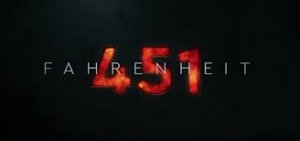Stel een vraag
Met het formulier hier onder kunt u contact op nemen met boekwinkel Fahrenheit 451.
[Antisemitism]. Bettauer, Hugo (1872-1925). - De stad zonder joden [Die Stadt ohne Juden/ The City Without Jews]. Een roman van overmorgen. Geautoriseerde bewerking van Ph.J.G. Roest.
De vraag gaat over de volgende titel:
| Schrijver: | [Antisemitism]. Bettauer, Hugo (1872-1925). |
|---|---|
| Titel: | De stad zonder joden [Die Stadt ohne Juden/ The City Without Jews]. Een roman van overmorgen. Geautoriseerde bewerking van Ph.J.G. Roest. |
| ISBN: | |
| Uitgever: | |
| Bijzonderheid: | Alphen a/d Rijn, A.C. de Haan, Uitgever, z.j. (1933), 1st Dutch edition, sewn in original wrappers with original dustjacket in black and orange . |
| Prijs: |
€ 750,00
€ 5,50
|
| Meer info | = Extremely scarce with the original expressive dustjacket with flaps with blurb preserved (strengthened on folds on the inside and outside spine-ends with acid-free tape). De Stad zonder Joden (Die Stadt ohne Juden, or The City Without Jews) was first published in 1922 and is arguably Hugo Bettauers best-known novel. Bettauer was also author of crime novels and campaigned for various social reforms, such as divorce law, abortion and the legalization of homosexuality. The City Without Jews portrays a satire on the acutely topical subject of antisemitism: a fictional politician orders the expulsion of all Jews from Vienna. Alexander Moulton observes "in scenes that are frighteningly prophetic, Austria borrows thirty stock car trains from neighboring countries to help in the expulsion (to the east) of the Jews and their belongings." In the book, the citizens of Vienna initially celebrated the expulsion, but sentiment changed as theaters went bankrupt and department stores, hotels and resorts suffered. The economy declined to such an extent that a popular movement arose demanding the return of the Jews. Without the Jews to blame, the ruling party collapsed; the expulsion law was repealed, and the Jews were welcomed back to Vienna. Hugo Bettauer succeeded in creating a relatively accurate allegorical vision of the near future, although the book was intended as entertainment and as a satirical response to the primitive antisemitism of the 1920s. It immediately became Bettauer's most commercially successful work: it was translated into several languages, and sold 250,000 copies in its first year. It became one of Bettauer's most controversial works, gaining him both great admirers and bitter enemies. Nazi sympathizers attacked Bettauer and his work, denouncing him as the "Red poet" and a "corruptor of youth". The novel was made into the 1924 feature film The City Without Jews, directed by Hans Karl Breslauer; shortly after the premiere of the film Hugo Bettauer was murdered by Otto Rothstock, a former member of the Nazi Party, who was lionized by the antisemitic Austrian masses and was released less than two years after having been committed to a psychiatric institution. The Dutch edition was publshed in the year of 1933 when the nazi rise in Germany was imminent - the publisher must have acknowledged the threat that the book was no longer a novel set in the future, but was actually being overtaken by current events, albeit not in Vienna at the time, but in Berlin. |
| Boek bekijken | |

De verkoper zal binnen 3 werkdagen contact met u opnemen om de koop verder af te handelen.
